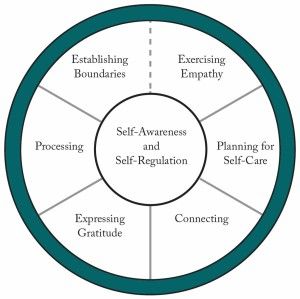Cultivating resilience in the face of chronic health conditions

Chronic health conditions can significantly impact one’s life, presenting various challenges both physically and emotionally. For individuals facing these conditions, cultivating resilience becomes crucial in order to navigate the obstacles and maintain a positive mindset. In today’s tech-driven world, advancements in health technologies and innovative solutions are empowering individuals to effectively manage their conditions and build resilience. This article explores how technology can aid in the cultivation of resilience, offering support, empowerment, and enhancing overall well-being.
Embracing Wearable Devices for Health Monitoring
Wearable devices have revolutionized the way we monitor and manage our health. These innovative gadgets allow individuals with chronic health conditions to gain valuable insights into their bodies, enabling them to take proactive steps towards better well-being. Through continuous monitoring of vital signs, activity levels, and sleep patterns, wearable devices provide real-time data that can be shared with healthcare professionals. This not only enhances the accuracy of diagnoses and treatment plans but also empowers individuals to actively participate in their own care.
Accessing Online Support Communities
Living with a chronic health condition can often feel isolating. However, technology has facilitated connections between people facing similar health challenges through online support communities. These communities provide individuals with a platform to share experiences, seek advice, and offer empathy, building a strong support network of individuals who truly understand their unique challenges. By fostering a sense of belonging and empowering individuals to take control of their conditions, online support communities contribute significantly to cultivating resilience.
Utilizing Telemedicine for Convenient Care
Visiting healthcare providers regularly can be challenging for individuals with chronic health conditions due to mobility issues or geographical limitations. However, telemedicine has emerged as a game-changer in healthcare, offering remote consultations through video calls or messaging platforms. This convenient approach provides individuals with easy access to healthcare professionals, enabling them to seek timely medical advice, discuss concerns, and receive necessary prescriptions. By removing barriers to healthcare, telemedicine encourages individuals to stay proactive in managing their conditions and fosters resilience in the face of challenges.
Adopting Mobile Apps for Condition Management
Mobile applications specifically designed for chronic health conditions have become increasingly popular. These apps offer personalized tools and resources that assist individuals in managing their conditions on a day-to-day basis. From medication reminders and symptom tracking to exercise routines and dietary guidance, these apps empower users and enhance their overall well-being. By providing a sense of control and facilitating self-care, mobile apps contribute to building resilience by equipping individuals with the necessary tools to effectively navigate their health journeys.
Incorporating Virtual Reality in Distraction Therapy
Chronic health conditions often involve long and sometimes painful treatment sessions. Virtual reality (VR) is now being widely utilized in healthcare settings to offer distraction therapy, helping individuals cope with discomfort or anxiety during procedures. VR technology immerses users in engaging virtual environments, diverting their attention away from the medical setting and enhancing their overall experience. By reducing stress and discomfort, VR fosters resilience by improving patients’ emotional well-being and allowing them to endure medical interventions with a greater sense of control and ease.
Conclusion
Living with chronic health conditions can be challenging, but technology is transforming the way individuals cope with and manage their conditions. From wearable devices for health monitoring to online support communities, telemedicine, mobile apps, and virtual reality, technology offers a wide range of tools and solutions to cultivate resilience. Embracing these advancements empowers individuals to actively participate in their care, seek support from like-minded individuals, access convenient medical advice, manage their conditions more effectively, and ultimately build resilience in the face of chronic health challenges.




